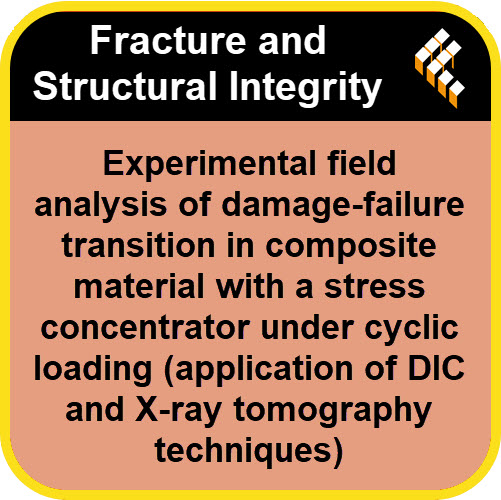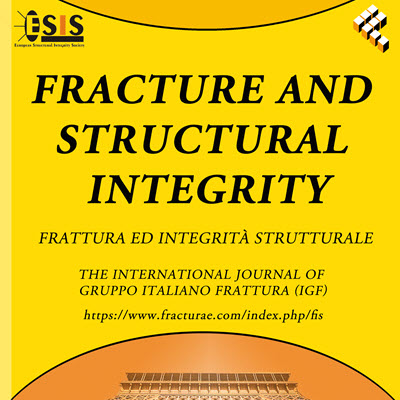Fracture and Structural Integrity: The Podcast
Stay at the cutting edge of fracture mechanics and structural integrity research with the official podcast of the Fracture and Structural Integrity journal. Join us for insightful interviews with top researchers, in-depth discussions of groundbreaking papers, and explorations of emerging trends in the field.
RSS Spotify YouTube Amazon Music
Experimental field analysis of damage-failure transition in composite material with a stress concentrator under cyclic loading (application of DIC and X-ray tomography techniques)
2025-11-01
https://www.fracturae.com/index.php/fis/article/view/5626
Predicting the failure of carbon fiber composites remains a challenge due to the complex evolution of damage, where the collective behavior of defects like pores and microcracks dictates material strength. The objective of this work is to elucidate the transition from damage accumulation to final failure under cyclic loading by analyzing the integral structural characteristics of the material. A methodology combining microtomography and digital image correlation (DIC) was employed to monitor damage evolution in situ. The analysis of DIC-derived strain fields during block cyclic loading pinpointed the critical transition stage to failure. Furthermore, Bayesian Gaussian Mixture models were used for threshold segmentation and cluster analysis, revealing that mechanical loading induces distinct populations of small and large pores. The main results show that while the overall pore orientation distribution remains consistent, the clustering and ordering of pores evolve differently under cyclic loads compared to quasi-static conditions. Specifically, unloaded samples exhibit three distinct pore clusters based on orientation, a structure that is altered by cyclic loading through pore expansion and coalescence, which ultimately reduces specimen strength. These insights advance the understanding of damage criticality in composites and provide a foundation for developing more accurate predictive models.
DownloadFiletype: MP3 - Size: 3 MB - Duration: 15:38m (320 kbps 44100 Hz)
Powered by Podcast Generator, an open source podcast publishing solution | Theme based on Bootstrap
